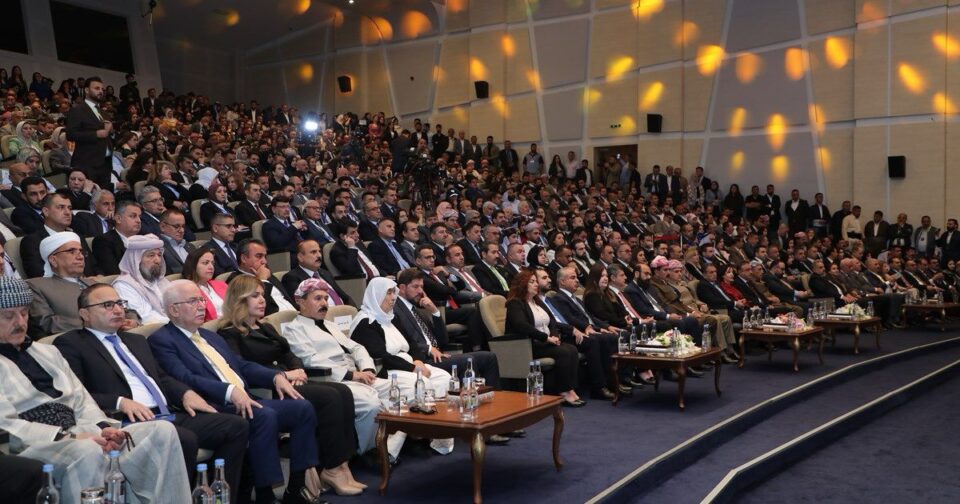On April 29, 2025, the First International Scientific Conference on Yazidi Heritage was held in Duhok, marking a pivotal moment in honoring and preserving the history, culture, and spiritual traditions of the Yazidi community. The event was held under the patronage of Kurdistan Region Prime Minister Masrour Barzani and co-organized by the Lalish Cultural and Social Center and Duhok University.
Hosted at the Duhok University Conference Center, the conference brought together researchers from 11 countries who presented 10 academic studies exploring the Yazidi community’s religion, culture, history, and geography. In his keynote address, Mir Hazim Beg, the spiritual leader of the Yazidis, stressed the importance of academic engagement in safeguarding Yazidi identity. He called on the next Kurdistan Regional Government (KRG) cabinet to ensure greater representation for Yazidis in leadership roles, acknowledging their historical contributions. He also expressed gratitude to President Nechirvan Barzani
and Prime Minister Masrour Barzani for their longstanding support of the Lalish Center’s efforts to protect Yazidi culture.
Representing the Prime Minister, KRG Minister of Interior Reber Ahmed emphasized Yazidism’s ancient roots and its integral role in Kurdistan’s cultural fabric. “Yazidism is one of the ancient religions of Kurdistan, with roots tracing back thousands of years,” he said, noting that Yazidi traditions contribute meaningfully to the region’s diverse identity.
Ahmed also highlighted theYazidi community’s enduring values of peaceful coexistence, forgiveness, and respect for all faiths. He contrasted their long-standing commitment to harmony with the horrific violence they have endured, particularly the 2014 genocide, which made their suffering all the more tragic.
Kurdistan Parliament member Vala Farid, speaking during a panel session, under scored the need for stronger Yazidi representation in the political system. She emphasized that while Yazidis have
historically been represented through party lists, they seek a voice that reflects their distinct identity. She advocated for the inclusion of a dedicated Yazidi ministry in the up coming 10th KRG cabinet.
Reflecting on the aftermath of the 2014 genocide, Farid outlined the KRG’s efforts to support survivors. She noted the establishment of a special office dedicated to rescuing Yazidi women, which has already helped many, though a large number remain missing. She also referenced the formation of a high-level committee in 2014, comprising various ministries and government bodies, to pursue justice and documentation of the genocide on both national and international levels.
The conference not only spotlighted the Yazidi community’s resilience and cultural wealth but also reaffirmed the Kurdistan Region’s commitment to inclusion, historical justice, and cultural preservation.

